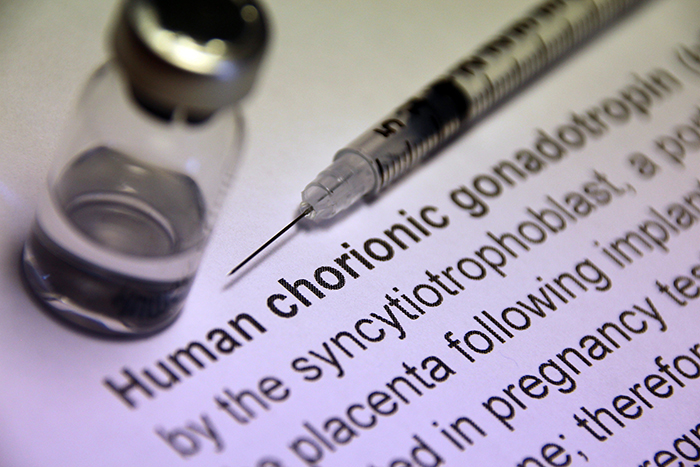HCG Diet – Not the Hunger-Free Miracle You Hoped For

The start of a new year can be the perfect motivation to lose weight. If you’re on the hunt for a diet plan to help you reach your weight loss goals, you might be considering the much-hyped HCG Diet. This extreme diet combines low-calorie eating with hormone supplements and claims to shed as much as one to two pounds every day, including cellulite, without hunger pains. While those kinds of promises sound like a fast-track to an impressive “after” photo, dietitians and the FDA are asking dieters to pump the brakes on this potentially dangerous (and ineffective) way to keep the weight off.
What is the HCG diet?
HCG stands for human chorionic gonadotropin, a hormone that’s elevated during early pregnancy but is also naturally present in men. The HCG diet typically consists of daily injections, pills or drops of the hormone.
“The idea is that HGC will suppress appetite and shift the body’s use primarily to body fat (similar to when a woman is pregnant),” says Jason Stevenson, a registered dietitian/nutritionist with the University of Miami Health System.
But, an ample amount of research does not support this claim, including some performed by the National Institutes of Health.
Why do some people lose weight on the HCG diet?
In addition to the HCG hormone supplement, this diet restricts your daily food and drink intake to approximately 500 to 900 calories. A healthy adult diet typically falls between 2,000 and 2,500 calories per day, based on one’s level of physical activity.
Of course you’re going to lose weight when you’re essentially starving your body.
“But, diets fewer than 900 calories per day are extremely hard to adhere to,” says Stevenson, a board-certified sports dietitian. “Once you reach your goal body weight, you would need to follow this diet almost indefinitely to maintain it. Fad diets like this one are unsustainable long term.”
Plus, your body’s endurance, organ function, cell renewal, and brain activity all run on the calories you consume. Your body needs more vitamins, minerals, and essential fatty acids than you can get on a exceptionally low-calorie diet.
Stevenson’s main concern is that “diets this low in calories generally have a rebound affect. It can disrupt your metabolism, making it harder to lose weight later on.”
What are my options?
While dramatic weight loss may still sound enticing, it isn’t the same thing as body fat reduction. No one has ever starved themselves – on the HCG diet or any other diet – into a fit, toned, healthy-looking physique.
It should be no surprise that “those who lose body fat and gain muscle do so by consistently eating healthy and committing to a solid exercise plan that fits into their lifestyle,” says Stevenson. “Slow, progressive weight losses are easier to maintain, and you’re less likely to stray from a balanced, satisfying nutrition plan.
“What you do today to get the results you want must be something you’re willing to keep doing to maintain those results in the weeks, months, and years ahead.”
Dana Kantrowitz is a contributing writer for UMiami Health News.
Tags: HCG diet, healthy eating, human chorionic gonadotropin, Jason Stevenson, Miami Nutritionist
